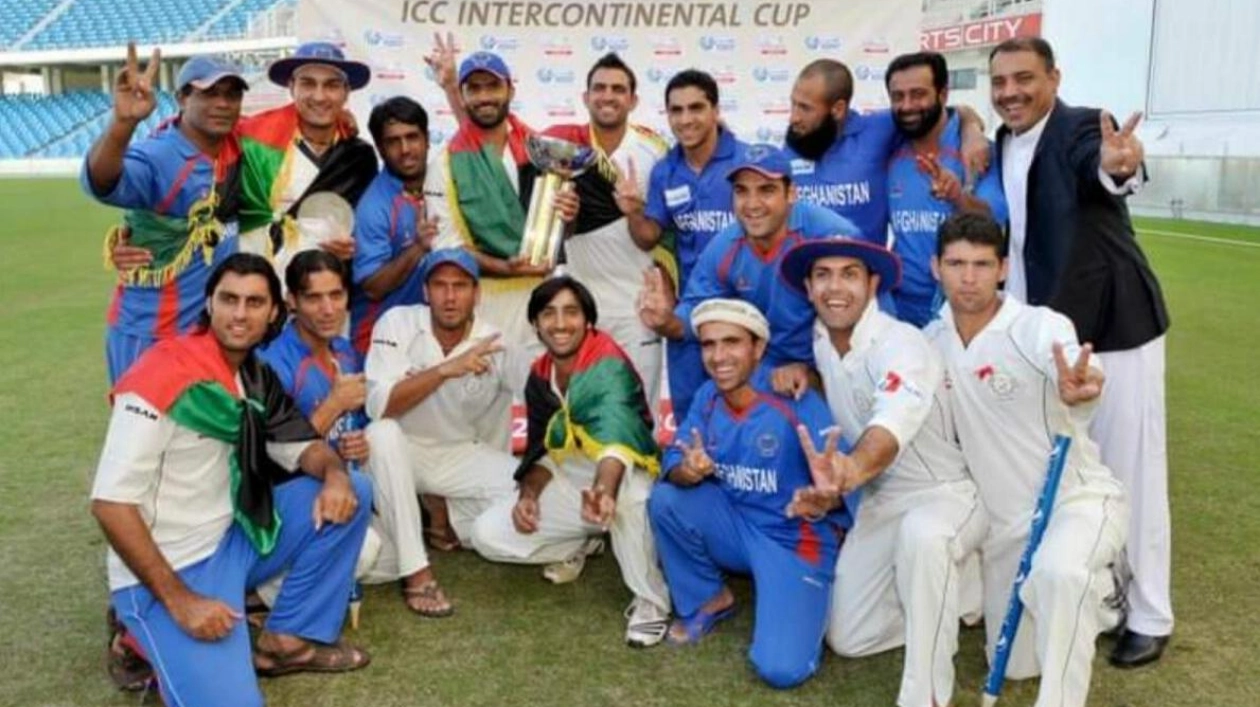As crowds gathered in the streets of Afghanistan to commemorate their remarkable journey to the T20 World Cup semifinals, Rashid Latif, the former captain of Pakistan, expressed his delight over the team's recent international success. Just seven months after their close miss at the ODI World Cup despite victories against major teams, Afghanistan made a historic breakthrough in the T20 format, clinching an 8-run victory over Bangladesh, setting the stage for a semifinal showdown with South Africa. This is a phenomenal accomplishment for a nation ravaged by war, which only began to seriously engage in cricket about ten years ago. Mazher Arshad, a renowned cricket statistician, highlighted the significance of this moment after the last Bangladesh wicket fell, igniting jubilant celebrations across Afghanistan. "16 years ago, Afghanistan competed in Division 5 of the ICC World Cricket League against teams like Japan, Singapore, and Botswana," Arshad noted. "Today, they stand in the semifinals of the ICC T20 World Cup, surpassing cricket giants like Australia, New Zealand, Pakistan, and the West Indies." The question arises: how did Afghanistan, a country with no prior cricketing legacy until the 21st century, become a formidable force in the sport? Latif, a distinguished wicketkeeper in the 1990s, has insight into this transformation, as he was the head coach when Afghanistan began making significant strides in cricket, winning a silver medal at the 2010 Asian Games after a surprising victory over Pakistan in the semifinals. However, the pivotal moment, according to Latif, occurred at the Dubai International Stadium just before the 2010 Asian Games in China. A youthful Afghan squad, largely composed of players who honed their skills in refugee camps in Peshawar, caught global attention by defeating Scotland in the 2010 ICC Intercontinental Cup final in Dubai. "That win in Dubai was pivotal. It was a tremendous achievement for such a young team," Latif remarked. "The $100,000 prize money was a significant boost, as there was little financial support in Afghan cricket at the time. That victory and the prize money served as a major motivation for the players to take their next big leap." Following that, they competed in the Asian Games, where they defeated Pakistan in the semifinals, another monumental achievement. Few are aware that Abdul Rahman Bukhatir, the pioneering Emirati cricket promoter, also extended support by allowing Afghanistan, unable to host international matches due to security concerns, to play their home games at the Sharjah Cricket Stadium. Afghan cricket continued to flourish, making their T20 World Cup debut in 2010 and their first ODI World Cup appearance in 2015. Three years later, they made their Test debut against India in Bangalore. Today, their players participate in the world's premier T20 leagues, including the lucrative Indian Premier League (IPL). At the international level, their fearless approach has positioned them as a formidable underdog in every World Cup. Interestingly, Latif sees parallels with Australia in the Afghan approach to cricket. "They embody the aggressive mindset of Australia. Their aggressive play, power, and fitness levels mirror the Australian style," Latif observed. "They are also very courageous, continuing to play even when injured. They compete until the last ball, leaving everything on the field." As the former Afghanistan coach, Latif felt immense pride after the team overcame Bangladesh to reach the semifinals. "I am extremely proud; this is a huge achievement for Afghan cricket," he affirmed. "They play aggressively, with excellent game awareness," he added, praising captain Rashid Khan. "Rashid has led by example, performing exceptionally well with the ball. The entire team has excelled in the Super Eights, with players like Gurbaz, Naveen, Gulbadin, Noor, and Nabi, who all have experience from top franchise leagues, including the IPL." Latif believes that coaching Afghanistan is essential for any renowned coach's resume. "If you're a successful coach but haven't coached Afghanistan, your CV feels incomplete," he stated. "Coaching them teaches you a lot about cricket and team spirit. They have a positive attitude, no negativity, and no ego. They are eager to learn and respectful, which makes them quick learners." However, Latif, who predicted Afghanistan's semifinal spot on June 17, thinks South Africa holds the advantage in the upcoming clash. "South Africa are favorites. They are a strong team. For Afghanistan, their batting performance, especially by Gurbaz, will be crucial. If they can set a target of 160 or 170, the game will be on. Then Rashid, Noor, Nabi, Naveen, and Gulbadin can aim for wickets. You can't underestimate them. If they reach the final, it would be the greatest day in cricket history."

Text: Lara Palmer
26.06.2024
From War-Torn Beginnings to Cricket Stardom: Afghanistan's Remarkable Journey in the T20 World Cup





